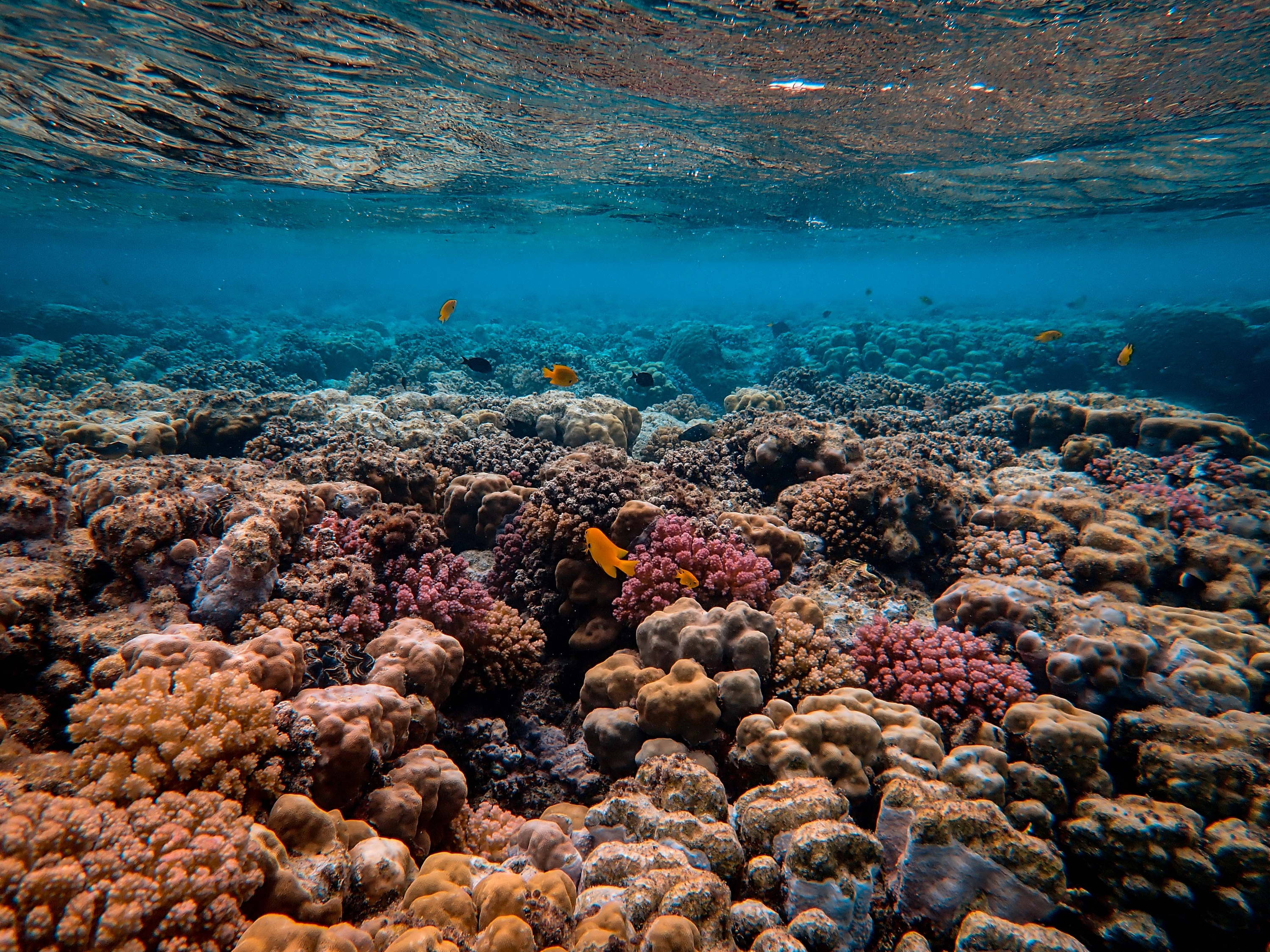OUR IMPACT
WHY IT MATTERS
The Ocean is our best ally against climate change.
The Ocean absorbs 90% of the excess heat from our greenhouse gas emissions. For every 4 tons of CO2 humans produce, the Ocean absorbs 1.5.

Our sunscreens are certified reef-friendly and exclude all known marine pollutants. Your purchase supports community empowering projects worldwide.
Reef scientists and passionate ocean advocates, our founders continue to travel the world to help protect and restore these ecosystems.
Projects We Support
French Polynesia
FIJI
Seychelles
Mauritius
Corals Planted
1,697
People Trained
63
Projects Supported
4
Coral Gardeners
FRENCH POLYNESIA 2019
The lagoon of Mo'orea Island in French Polynesia displays beautiful marine life and coral reefs. However, after consecutive years of coastal development, tourism pressures and climate change induced bleaching events, the reef community of the lagoon of Mo'orea has dramatically declined. Today, many areas of the lagoon are dominated by seaweed and dead coral rubble. The non-for-profit Coral Gardeners is committed to saving the last corals of Mo'orea and restore the ecological function of lagoon coral reefs on their island. They know for a fact that we depend - as humans - depend on coral reefs, not the other way around...
P4O co-founder, Louise Laing MSc joined Coral Gardener's restoration team in November 2019. The main objective of the mission was to establish Coral Gardener's long-term strategy to restore the functionality of reefs in three marine parks of the northern lagoon. The focus is made on corals showing a natural pre-adaptation to climate change and other human stressors. If we are able to locally propagate these "super corals", we can assist the natural evolution of lagoon reefs in Mo'orea and give them a fighting change. The mission was also the opportunity to train the team to field monitoring methods and new coral transplantation techniques. Overall, the collaboration gave a more focused purpose to the actions of Coral Gardeners and led to an incredible exchange of knowledge and skills from both groups.
The Strategy
Seychelles
2015 - 2017
Nature Seychelles
P4O founders spent two years leading a large-scale reef-restoration project implemented by the conservation NGO Nature Seychelles and funded by USAID and the United Nations Development Program. Since its implementation in 2010, the project has planted over 24,000 corals on the reef of Cousin Island in the Republic of Seychelles.In 2016, we experienced the devastating impacts of climate change, witnessing the reef being wiped-out by a severe heat wave during the 2015/17 El Niño event. We collected and analyzed weekly data on coral response to heat stress during seven consecutive months of monitoring effort. Following the heat stress, we implemented an emergency coral restoration plan adapted to boost reef recovery post mass-bleaching:
1. Live fragments of opportunity (naturally detached) and naturally dislodged colonies were collected, fragmented and seeded onto a nursery for one year, allowing fragments to grow into full-sizes coral colonies. Through these actions, we generated and replanted nearly 3,000 heat-resistant corals. To learn more about the Reef Rescuers Project, click here.
2. Manual removal of seaweeds was regularly undertaken on the designer reef to "make some room" for potential coral larvae, allowing them to recruit the area and settle onto the reef, further improving recovery at the scale of the ecosystem.
3. Controls of predator populations were addressed: Over 200 Crown-of-Thorns starfish (Acanthaster planci) were injected with lethal doses of vinegar in order to avoid further coral mortality on a resilient site. Manual collection of nearly 2,000 coral-eating snails Drupella spp. were necessary to restore normal population densities, more balanced with the low coral cover on the designer reef after bleaching-related mortality.
Six Senses Zil Pasyon
In October 2017, 1863 coral-fragments were seeded into a coral-nursery within the Marine Park of Felicity Island. Those fragments were collected from donor corals made vulnerable from infestation by the coral-eating snail Drupella spp. During the 12-months period of coral-growth, the nursery will be visited by guests and local Seychellois via snorkeling or scuba diving and allow to raise awareness about the world's coral crisis.The transplantation of the nursery-grown corals is scheduled for the end of 2018, when fully grown colonies will be securely cemented to the seafloor onto granite ridges and boulders, restoring 600 square meters of fringing reef previously degraded by the 2016 El Nino, a climatic event responsible for widespread coral mortality in the Seychelles inner islands and worldwide. This new coral garden will naturally recruit marine life such as reef fish, crustaceans and even coral larvae from nearby areas. It will also become an attractive site for more spectacular animals like sea turtles, rays and reef sharks. Regular data collection and scientific monitoring will allow to assess the extend of this project's conservation achievements. Read more about this project here.

